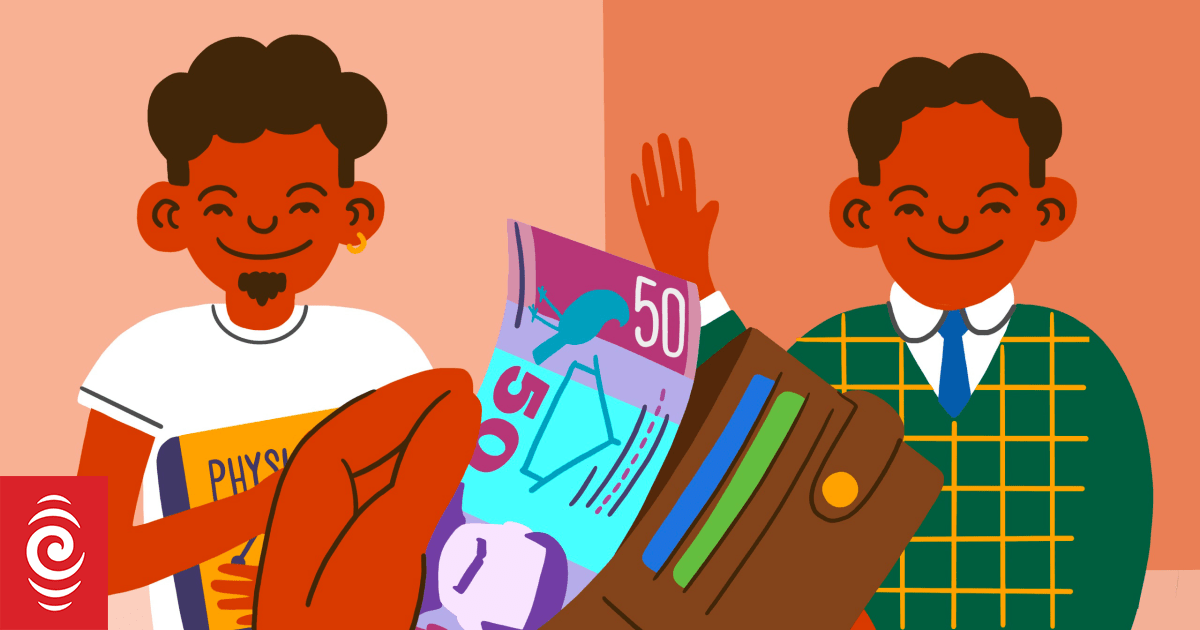Financial help early on in a person’s life can have an impact many times its initial value.
Photo: RNZ
A helping hand from the Bank of Mum and Dad can leave first-home buyers more than a million dollars better off in retirement.
RNZ and Simplicity economist Shamubeel Eaqub ran the numbers comparing the outlook for a young person whose parents could give them $100,000 to help buy a house, to that of someone who had to save their full deposit themselves.
The scenario isn’t definitive but it illustrates the way financial help early on in a person’s life can have an impact many times its initial value.
The outcome varies a lot depending on a range of factors, including the returns on savings and investment, and income and house price growth.
For this scenario, we have used two fictional law graduates, Maia and James, both aged 24.
We assumed each person has a student loan of $50,000 repaid with no interest, that house prices grow 4 percent a year, their salaries grow with inflation and following the usual age profile, and mortgage rates remain constant at 5.2 percent.
Both contribute to KiwiSaver, with $20,000 in their accounts when they graduate. Their investments and savings make a conservative 4 percent a year.
They leave university and get jobs earning $82,000, which Careers says is the starting point for solicitor salaries.
At that point, both are renting rooms in shared houses and paying $350 a week in rent.
After two years, Maia’s parents give her $100,000 and she withdraws money from her KiwiSaver to make up the 20 percent deposit required for a $700,000 home.
She has a mortgage that costs her about $1433 a fortnight but she gets a flatmate in to help her, paying the maximum that can be charged to a boarder without tax, currently $237 a week. This increases over time.
James, on the other hand, needs until he is 35 to accumulate the deposit on his house. By that point, the townhouse is worth $996,318 and his mortgage payment is $2000 a fortnight.
At this stage, Maia has already built up more than $530,000 in equity in her house.
Both save 10 percent of their after-housing cost income throughout their lives.
Assuming neither person wants to move to another property in their life or borrows any more money against their house, Maia is mortgage-free at about age 56. James is still paying until he is 63.
Maia is worth $2.2m at 65, in 2025 dollars, or $5m in nominal terms, not adjusted for inflation.
In contrast, James is worth $536,000 in 2025 dollars, or $1.2m in unadjusted terms.
Eaqub said the effect of the parent input would be cumulative over a person’s life.
People who had money from their parents could get into the housing market earlier, and could have lower housing costs throughout their lives, as well as the ability to save and increase their equity in their property.
“Getting an outright gift at the beginning means you’re paying off your mortgage earlier, and you’re taking on less debt.
“It also grows the wedge between haves and have nots. The landed gentry versus the rest. It’s a hereditary source of wealth, stability, and security.”
Sign up for Ngā Pitopito Kōrero, a daily newsletter curated by our editors and delivered straight to your inbox every weekday.
